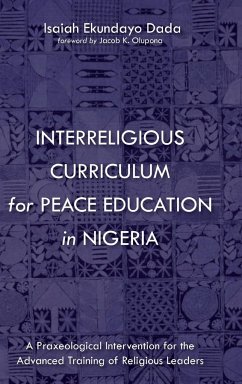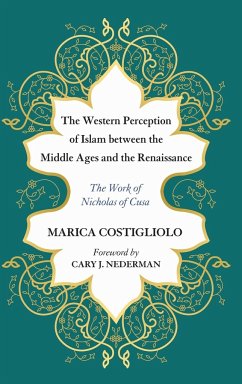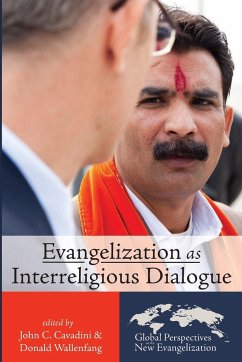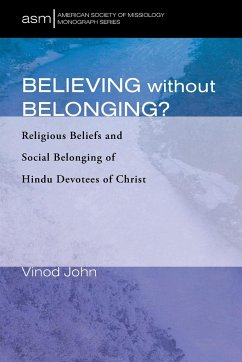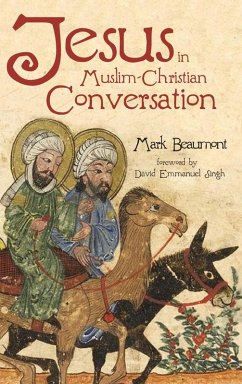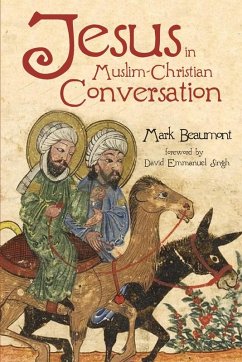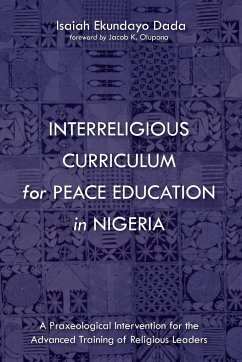
Interreligious Curriculum for Peace Education in Nigeria
Versandkostenfrei!
Versandfertig in 1-2 Wochen
32,99 €
inkl. MwSt.
Weitere Ausgaben:

PAYBACK Punkte
16 °P sammeln!
Nigeria, a country under a military regime for several years, transitioned to a civilian regime in May 1999. Since this change, violent conflicts between Christians and Muslims have continued to erupt. They constitute one of the gravest dangers facing Nigeria, a country with a population of 189 million people. What have Nigerian religious leaders done about this situation, especially in educational circles? Have they received formal educational training to understand the causes of this violence and especially how to provide alternatives for more peaceful relations within Nigeria? Does the curr...
Nigeria, a country under a military regime for several years, transitioned to a civilian regime in May 1999. Since this change, violent conflicts between Christians and Muslims have continued to erupt. They constitute one of the gravest dangers facing Nigeria, a country with a population of 189 million people. What have Nigerian religious leaders done about this situation, especially in educational circles? Have they received formal educational training to understand the causes of this violence and especially how to provide alternatives for more peaceful relations within Nigeria? Does the current educational system in Nigeria provide the main ingredients for the promotion of a culture of peace? The absence and neglect of interreligious peace education as part of a peace education core program and the lack of an interreligious curriculum for peace education in the training of religious leaders are the two problems contributing towards the lack of effectiveness of religious leaders in promoting less violent and more peaceful living. The solution to the problem is proposed in this book entitled Interreligious Curriculum for Peace Education in Nigeria. The book develops a one-year curriculum, building on Yoruba, Islamic & Christian conceptions of peace, and teaches how to create safe, caring, spiritual, peaceful and successful interfaith relationships between all Nigerian religious communities. In the long term, the book helps to educate religious leaders to contribute, in themselves and with the help of their respective religious communities, to reducing the growing religious violence in Nigeria.





